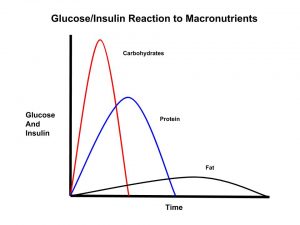Our goal is to help people in our communities to reverse Type 2 Diabetes and reduce weight. Our commitment is to provide you with information and support to allow you to make a decision and take the action you feel is correct.
We boldly state that Type 2 Diabetes is reversible based on new research and grassroots activities that are going on throughout the US through grassroots efforts of doctors, clinics, nutritionists, and individuals. There are two Lions within District 20R1, Bob Collins and John Wienecke, who on separate paths discovered this possibility and have personally changed their diet and have achieved measurable results. This includes weight loss, reduction in blood sugar levels, lower cholesterol, lower triglycerides, lower inflammation, and other measurable outcomes. Current medical approaches to Type 2 Diabetes actually make the problem worse leading to the statement stating that Type 2 Diabetes is a chronic, progressive disease. However, you will learn that with the right information, you can lose weight and reverse Type 2 diabetes.
Our objective is to provide the following for Lions clubs and the people they serve in their community:
- Why Type 2 diabetes is not a chronic, progressive disease as the American Diabetes Association states.
- What the cause of Type 2 Diabetes is and how to reverse it.
- How to facilitate weight loss and avoid Type 2 Diabetes
- Provide a flexible support program, with options, that people can follow to lose weight and reverse insulin resistance, the cause of Type 2 diabetes. The support program will allow them the ability to get their questions answered, share their experience, and learn from others.
- Be available to speak at Lions Clubs meetings and other community events to help educate people on losing weight and helping reverse Type 2 Diabetes.
Based on our research the best diet to accomplish weight loss and reversing diabetes is a Low Carb – Ketogenic Diet. To understand the diet and the science behind it please see our Ketogenic Diet Page.
The best way to use the site
There is a lot of information on the site for you and we suggest an easy approach.
To educate your self on the subject, scroll down the home page which is linked to the core pages. You will find:
- Our Commitment to you
- The best way to use the site (where you are now)
- How to test for prediabetes and being overweight
- Educational videos where experts state why this diabetes can be reversed
- Additional Risk associated with metabolic syndrome & diabetes
- The cause of weight gain, understanding the science behind why we struggle with losing weight.
- Our support programs, how we are helping people in our communities
- How to contact us.
If you know you want to lose weight or would like to reverse your diabetes and consequently get off your medicine. Go to “Getting Started” on the menu.
- Here we describe what you need to get started
- Explain the recommended Ketogenic diet and why
- Recommended food to eat
- Fasting options, another method for losing weight and reversing diabetes.
Resources – Other Topics of value
- Education – Educational Videos
- Resources: Apps, Books, Recipes, Tools
- Performance: Topics related to performance
- Diets: Description of other diets
- Ketogenic Wines
- Blood test: Ability to get your blood tested
- Type 1 Diabetes Information
- Heart Disease Explained
- Peer Reviews
- Other Information
If you have any question, use the Contact Us page. Also, check out our Support page for dates and times of our live support webinars
Hopefully, we can inspire you to
“Let food be your medicine and your medicine be your food” as stated by Hippocrates.
Start by determining your health
According to the Center for Disease Control and Prevention (CDC), 110 million US adults are now living with diabetes or prediabetes based on 2015 report.
- 30.3 Million US Adults have Diabetes
- 84.1 Million US Adults have Prediabetes, only 11.6 % know they have it
- Diabetes is the 7th leading cause of deaths in the US in 2015
We promote being knowledgeable about your health. Here are some key metrics that you can perform to know where you are regarding Type 2 prediabetes, Type 2 diabetes, and whether or not you are considered overweight and, if so, to what degree. Knowledge is power.
Test for Type 2 prediabetes or diabetes
You can ask your doctor about your latest blood test or you can get a blood test monitor (see Resources: Tools) and test yourself. Since insulin drives Type 2 Diabetes and obesity, having the ability to measure glucose levels is valuable.
Fasting blood sugar test after fasting 12 hours based on American Diabetes Association
- Normal: Fasting blood sugar level 100 mg/dL or lower
- Prediabetes: Fasting blood sugar level 100 – 125 mg/dL
- Diabetes: Fasting blood sugar level 125 mg/dL or greater
Obesity Test
Calculate Adult Body Mass Index: – Standard for Measuring Overweight & Obesity – Centers for Disease Control Standard for Adult Overweight & Obesity.
- BMI less than 18.5: Underweight
- BMI 18.5 to < 25: Normal
- BMI 25.0 to <30: Overweight
- BMI 30.0 or higher: Obese
Calculate Child/Teen (Under 20 years old) Body Mass Index – This is measured based on the percentile range for their age.
Food & Health Revolution
We recommend that when you have time, watch a few videos related to the grassroots effort to educate and understand food and health, allowing you to make better choices. Educational Videos
Your Health Is Your Responsibility
You are responsible for your health, we are not medical professionals. None of the recommendations that we share with you from medical professionals should take the place of working with your own medical team to determine what you need to do for your specific situation. If you are a diabetic and choose to follow the dietary recommendations, it is highly likely that your blood sugar levels, in most cases, will come down. Therefore you need to be able to measure and adjust your medicine accordingly.
We know that people are busy, that is why we have indicated the duration of our videos. We have chosen to include longer videos as we feel it is important for you to have a more in-depth understanding which we believe will empower you to make the change needed to be Fit4Life.
Please take some time to be educated further on the problem, its impact, and what you can do about it. See our educational section: Click Here. We hope you find the site valuable and you are welcome to participate in our support programs.

